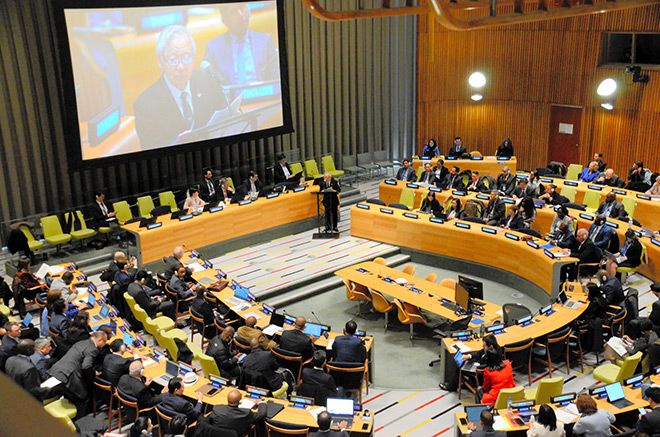Japan will not take part in a U.N. nuclear weapons ban treaty conference in New York in March as an observer, said Prime Minister Shigeru Ishiba, overriding calls from a key political partner as well as hibakusha.
Instead, Ishiba told senior government officials Jan. 25 that he intends to send lawmakers from the ruling coalition of the Liberal Democratic Party and Komeito to the third meeting of signatories to the Treaty on the Prohibition of Nuclear Weapons without official observer status.
Komeito has called for Japan’s participation as an observer, but Ishiba remains reluctant to take that step.
“I do not have an intention to deny extended deterrence,” Ishiba told a Diet session in December, referring to the Japan-U.S. Security Treaty under which Japan is protected by the U.S. nuclear umbrella, , among other means.
Calls to attend with observer status also came from Nihon Hidankyo (Japan Federation of A- and H-Bomb Sufferers Organizations), a group of atomic bomb survivors that won the Nobel Peace Prize last year.
Toshiyuki Mimaki, who co-chairs the organization, asked the government to take part in the March meeting as an observer when he met with Ishiba at the prime minister’s office on Jan. 8.
“Why can’t Japan attend the meeting fairly and squarely?” asked Mimaki, 82, about Ishiba’s decision. “It is mortifying and regrettable.”
Mimaki described the plan to send ruling coalition politicians as “a step forward, no matter how small,” adding that he hopes for more positive action at the fourth meeting of the treaty signatories.
Kunihiko Sakuma, who heads the Hiroshima Prefectural Confederation of A-Bomb Sufferers Organizations, said Japan’s policy of staying away from the meetings can be viewed as weighing down the drive toward abolishment of nuclear weapons.
As a nation devastated by atomic weapons, “Japan should make clear where it stands,” said Sakuma, 80.
The Treaty on the Prohibition of Nuclear Weapons, which took effect in 2021, bans the possession, use and development of nuclear weapons.
Japan advocates the necessity of abolishing nuclear weapons but emphasizes extended deterrence.
The government has maintained a negative attitude toward the treaty on grounds that nuclear powers have not joined, and so has refrained from participating in signatories’ meetings as an observer.
(This article was written by Kohei Morioka and Hayashi Yanagawa.)
